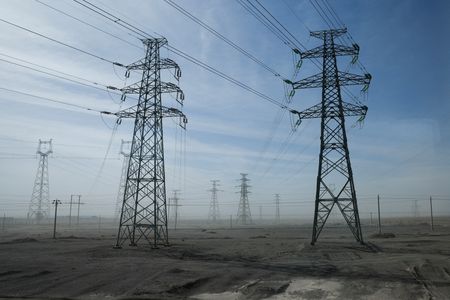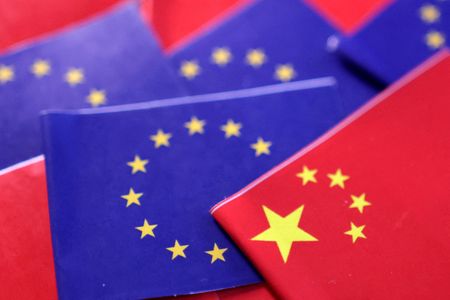By David Shepardson
WASHINGTON (Reuters) -The Federal Communications Commission said on Wednesday it plans to adopt rules to bar companies from connecting undersea submarine communication cables to the United States that include Chinese technology or equipment.
“We have seen submarine cable infrastructure threatened in recent years by foreign adversaries, like China,” FCC Chair Brendan Carr said in a statement. “We are therefore taking action here to guard our submarine cables against foreign adversary ownership, and access as well as cyber and physical threats.”
The United States has for years expressed concerns about China’s role in handling network traffic and the potential for espionage. The U.S. has broad data security concerns about the network of more than 400 subsea cables that handle 99% of international internet traffic.
Since 2020, U.S. regulators have been instrumental in the cancellation of four cables whose backers had wanted to link the United States with Hong Kong.
The FCC last year said it was considering new rules governing undersea internet cables in the face of growing security concerns, as part of a review of regulations on the links that handle nearly all the world’s online traffic. The FCC said it was considering barring the use of equipment or services in those undersea cable facilities from companies on an FCC list of companies deemed to pose threats to U.S, national security, including Huawei, ZTE China Telecom and China Mobile.
Carr said the FCC is taking action to “guard our submarine cables against foreign adversary ownership, and access as well as cyber and physical threats.”
The FCC will also seek comment on additional measures to protect submarine cable security against foreign adversary equipment.
The cutting of two fiber-optic undersea telecommunication cables in the Baltic Sea prompted investigations of possible sabotage.
In 2023 Taiwan accused two Chinese vessels of cutting the only two cables that support internet access on the Matsu Islands and Houthi attacks in the Red Sea may have been responsible for the cutting of three cables providing internet service to Europe and Asia.
(Reporting by David Shepardson, Jasper Ward and Bhargav Acharya; Editing by Caitlin Webber and Leslie Adler)









